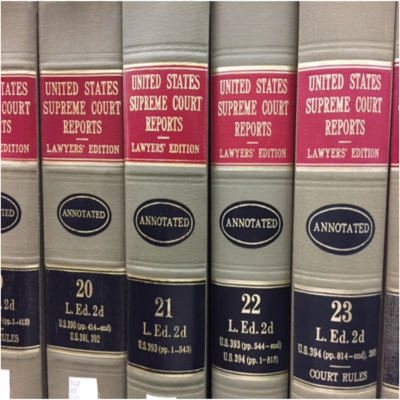The Right to Appeal
The Right to Appeal

If you lose all or part of a civil lawsuit in which you sue someone or are sued, you have a right to appeal the decision to a higher court. If you are convicted in a criminal case, you have a right to appeal the conviction or the sentence imposed by the judge. An appeal is a request by the losing party asking a higher court to overturn an order or decision of the judge who decided the case or made rulings at a civil or criminal trial. An appeal is basically a way of saying that you believe that the lower court made a mistake in applying the law in your case, and you are asking the higher court to correct that mistake. The right to appeal is important because it helps to assure that you are protected from a mistake by the court. In Alaska, an appeal is usually taken from a final decision of a Superior Court judge to the Alaska Supreme Court.
Although having a lawyer is not required, you should seriously consider hiring one if you want to an appeal the outcome of a civil or criminal case. If you choose to appeal without a lawyer, you must study and follow the applicable Alaska Rules of Appellate Procedure. If you fail to follow the appellate rules, which include procedures and deadlines for submitting your arguments to the court, your appeal can be dismissed. The procedures and other requirements for an appeal are not simple, and it is difficult for a person without legal training to follow them accurately. Lawyers can help clients decide whether to appeal. Lawyers are trained to follow the court requirements, and to make the arguments that give you the best chance of succeeding in an appeal.
If you want to appeal a court decision, it is very important to follow the timing rules. An appeal is not automatic. You must take action to appeal your case. Generally, you must wait until the lower court issues a written final decision, and must file various appeal papers required by the court system within 30 days after the date of that decision. The required appeal papers include a “Notice of Appeal,” and “Points on Appeal,” which means a list of the reasons why you think the lower court’s decision was incorrect. There may be additional court forms and you may be required to pay a filing fee and post a bond. This guide can only give you general suggestions. If you choose to appeal without the help of a lawyer, you must read and follow the Rules of Appellate Procedure precisely.
In Alaska, you are entitled to one appeal as a matter of right. This means that if you go to court, the court or jury rules against you, and you request an appeal, the higher court must hear your case. You do not have this right if you plead guilty in a criminal case. Your appeal must be based on one of the following grounds:
- the original hearing was not conducted according to required procedures,
- your constitutional rights were violated, or
- the outcome was unfair or based on insufficient
If the court rules against you in your first appeal, you may be able to appeal that decision too. But the reviewing court does not have to hear your second appeal. It may do so but does not have to.
One important thing to remember is that if you are in detention (jail) at the time of appeal, you will likely have to stay there through the appeals process.
Once the required appeal papers are filed, a timeline begins to run. Your attorney will have a certain number of days to submit a brief to the court. A brief is a document stating the facts, the points of law, and the arguments in your case. If the parties ask for oral argument, the court will set a date for it. At oral argument, the attorneys for both sides will have a limited time to explain or argue their cases for the judges. The judges can ask as many questions as they like during this time. After oral argument, the court will consider the arguments and issue a decision.
In an appeal, the higher court can affirm, or agree with, the lower court’s judgment. If you brought the appeal, this mean you lose the case. The court could also reverse the lower court’s
decision. Sometimes, when an appeal court reverses a lower court decision, it will send the case back to the lower court, and tell the lower court to correct the mistake by conducting a new trial. The higher court could also reverse and issue a new final decision that reaches a different conclusion. Finally, the court could dismiss the case entirely if it decides it does not have jurisdiction (that is, authority) to hear it.



